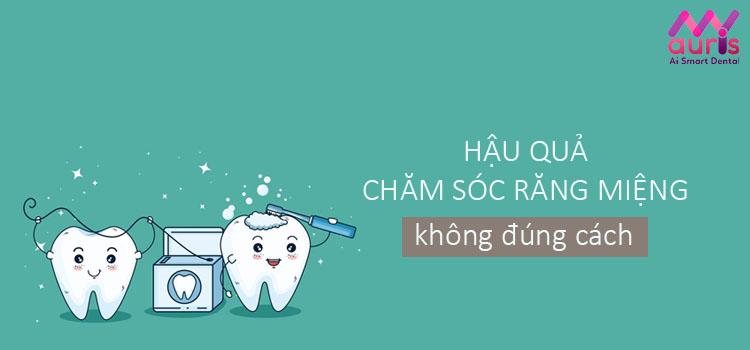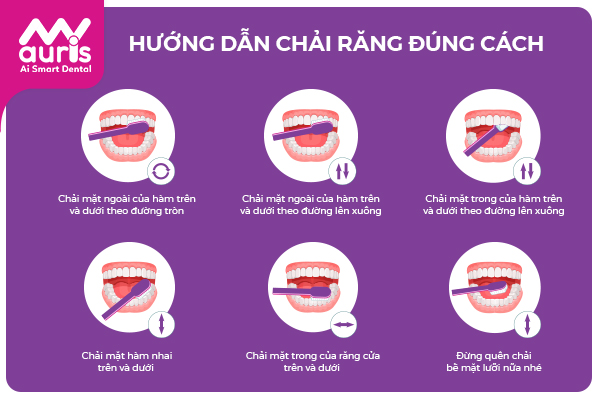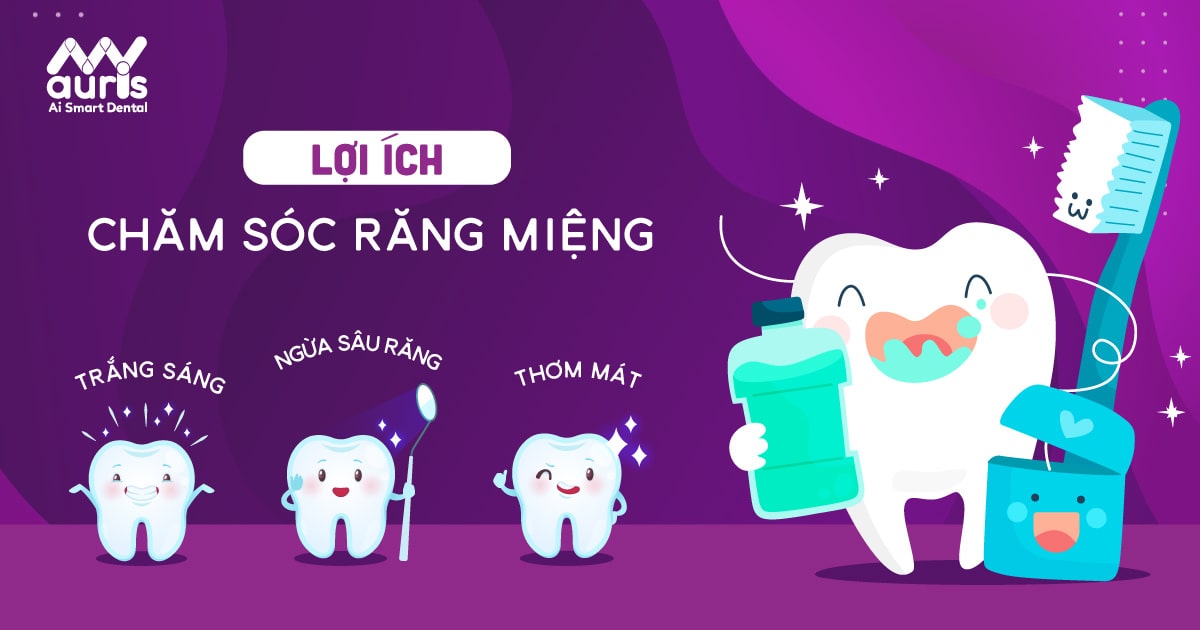Oral care for the whole family not only brings benefits of enhancing the ability to chew and absorb nutrients, but also helps avoid toothache and prevent gum disease. If you don’t want to have problems with your oral health in the future, taking care of your teeth now is extremely necessary. So, what is the oral care process like, what is the correct method of dental care? Please refer to the following article to find the answer!
1. What harm will improper oral care cause?
Improper oral hygiene will lead to harm: teeth and gums are abraded, easily irritated due to brushing too much and brushing with too much force. This way of cleaning teeth not only does not prevent the risk of tooth decay and gingivitis, but also makes the teeth weaker, the risk of tooth decay, and the possibility of being extracted is very high.
When you have dental diseases due to brushing your teeth incorrectly, food and sugar will get stuck between the teeth and create conditions for bacteria to multiply. The more bacteria there are, the more severely inflamed the gums will be, causing pain and limiting blood circulation, leading to other complex problems in the body.

People with gum disease are at high risk of cardiovascular disease, diabetes… Swelling in the oral cavity also causes inflammation in blood vessels, making dental problems more serious.
Infected gums also secrete substances that cause inflammation, affecting affects brain swelling and death of brain cells, causing memory loss.
If tooth decay and pulpitis are too serious, it will lead to tooth abscess, blood infection, and risk of death.
2. Instructions for proper oral care?
Oral care is a necessary thing for everyone to do regularly to prevent dental diseases and bring strong teeth to you.
In some cases, subjectively skipping scientific tooth brushing, flossing, tongue cleaning… or regular dental check-ups will easily lead to dental diseases and gums, making the risk of tooth loss and premature tooth loss quite high.
You should take the proper oral care steps below to prevent this condition from the beginning to have strong teeth.
Regularly clean your teeth
Brush teeth 2-3 times/day after eating and before going to bed using oral care products containing fluoride to effectively prevent tooth decay. Choose a soft-bristled toothbrush with a small brush head and brush your teeth gently to avoid damaging the teethto the gums.
Even the most thorough brushing cannot reach the innermost teeth and the small area between the teeth. Therefore, using dental floss to support oral hygiene is essential.
Rinse your mouth with diluted salt water to help clean bacteria in the oral cavity, then rinse your mouth with clean water after using salt water. At the same time, clean your tongue by using a tongue scraper regularly after each brushing.

This is the best way to prevent bacteria from attacking and causing disease to your teeth. If you brush your teeth incorrectly, it will damage tooth enamel.
Brush the outside and chewing surfaces properly by placing the brush at a 45-degree angle to the jaw, brush from the tooth root to the chewing surface very gently, avoid brushing horizontally because it can easily wear down the tooth roots.
For the inside surface of the teeth, place the brush vertically, use the head of the brush, brush lightly from top to bottom. Then, clean your tongue using a tongue scraper. When brushing your teeth, you should pay attention to the following daily oral care practices:
- Do not brush your teeth too much, too fast or too hard because it will cause bleeding gums.
- Brush your teeth 30 minutes after eating to avoid damage to tooth enamel.
- Using an automatic toothbrush, you must brush each tooth, following the curvature of the gums and the shape of the tooth to remove all plaque on the teeth, keeping the brush head on each tooth. a few seconds to brush clean, then move to the next tooth.

3. How to effectively take care of your teeth with a suitable diet
- To keep your teeth and mouth healthy, you need to limit sweet, sticky, sticky or acidic foods such as candy, carbonated soft drinks, etc. These foods are not good for your health and increase the risk of harm to your teeth.
- Eat a variety of foods because if your body lacks nutrients, dental disease will progress quickly and severely. more.
- Increase your intake of fruits and vegetables so that the fiber in these foods will help clean dental plaque from your teeth.
- Drink plenty of water to avoid dry mouth and increase salivation to protect the soft and hard tissues in the oral cavity.
- Regular dental check-ups are also very important to keep teeth healthy. Dental diseases in the early stages have no obvious signs, so they are difficult to detect. Therefore, besides chTo properly care for your teeth, you need to have regular dental check-ups every 6 months at the dental clinic to detect diseases early and have timely treatment solutions.

Effective oral care is the premise for healthy teeth and gums. You just need to spend a little time every day taking care of your teeth and you can confidently own a bright smile.
With just a few simple steps to care for your teeth and using quality oral care products, you can protect yourself from common dental diseases. Change now to ensure your oral health in the future!
For children, there will be a separate dental care regimen. You can read the following article to equip your baby with health care knowledge. data-action=”share/whatsapp/share” class=”icon primary button circle tooltip whatsapp show-for-medium” title=”Share on WhatsApp” aria-label=”Share on WhatsApp”>





